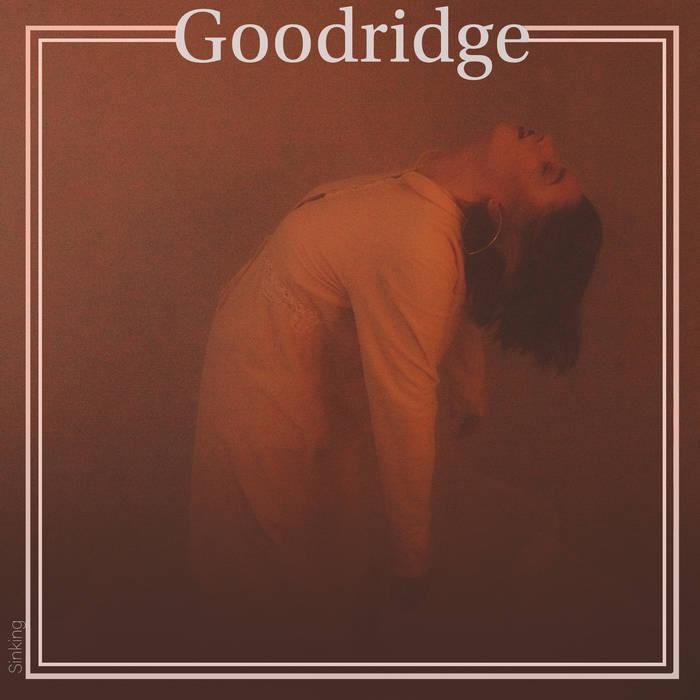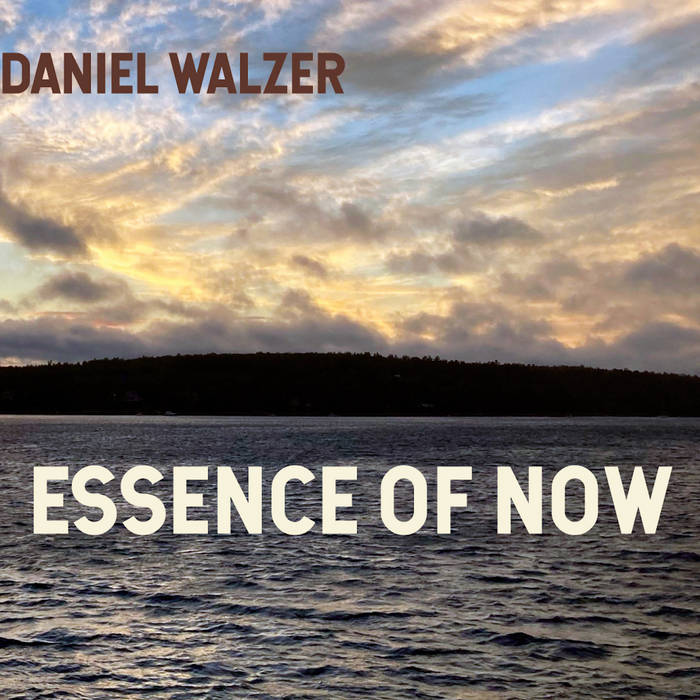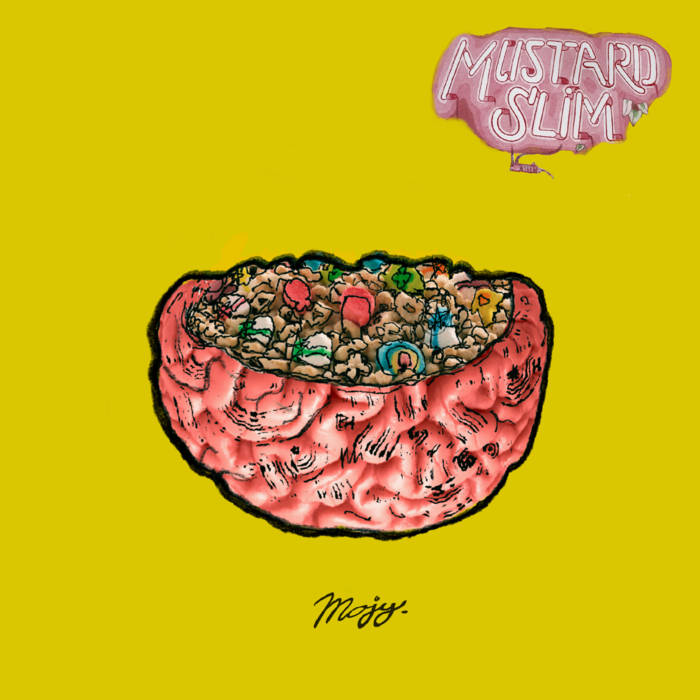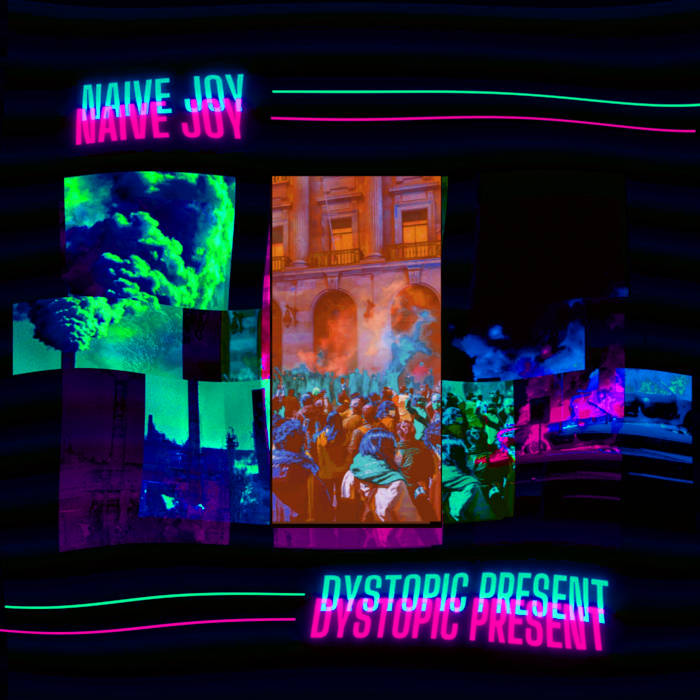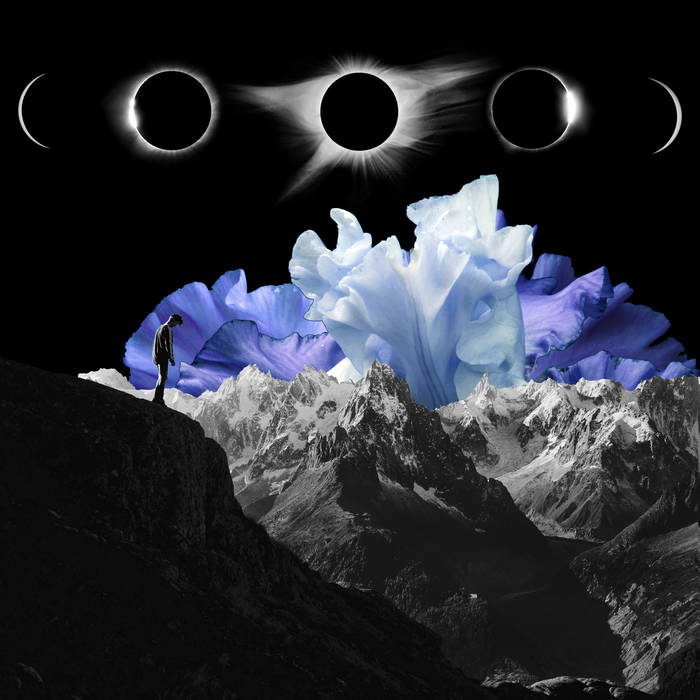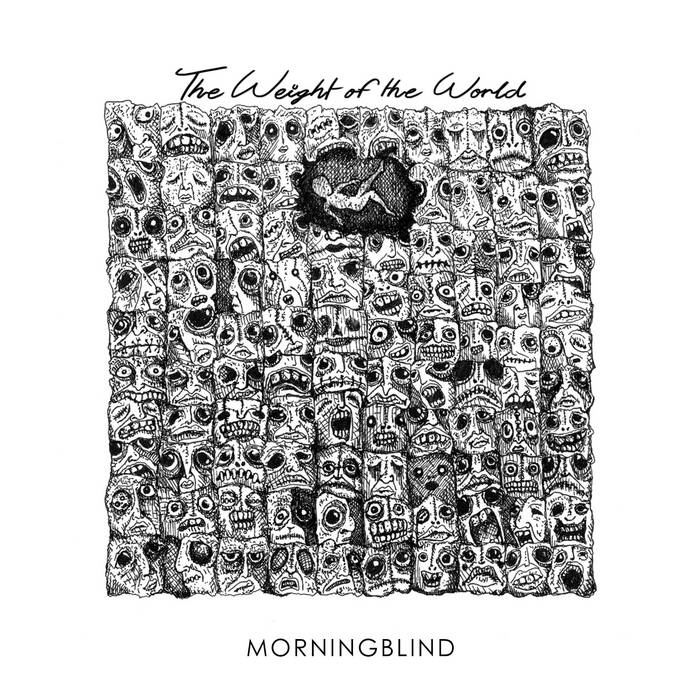|
Formed out of Tulsa, Oklahoma, Goodridge is comprised of Frank Blation, Chris Neal, Ceejay Fennell and Michael Melton. Originally formed in the winter of 2019 into 2020, the band stayed silent during the pandemic, writing songs and hoping for better days. Finally in January 2021, they started recording with Riff Room Recordings to start getting music to the fans and having material for when gigs started opening back up. Their debut EP Sinking features alternative, pop punk and Midwest emo musical styles. Recorded, mixed and mastered by Skyler Wilkerson and Cameron Telford at Riff Room Recordings in Oklahoma City, Oklahoma with limited vocal recordings tracked at the Goodridge house in Broken Arrow, Oklahoma. Some notable band influences include, The Wonder Years, Owls, Sleepy Dog, Into it. Over it, This town needs guns, Free Throw, Microwave and Delta Sleep.
The band states the EP itself is like a duality of concepts, musically, with the fast-paced pop-punk being interlaced between the more dramatic Midwest emo inspired soundscapes. Consistent movement seems to rotate between the instruments as the songs evolve showing off a multitude of musical directions. Lyrically, the songs take on a somewhat somber, if not slightly cynical outlook of some of the harder aspects of life to deal with. The opening track “Flowers” outlines the heartbreak of letting go of a loved one who has passed. There's some nice noodling going on between the bass and guitar playing, contrasted by the post-punk/emo ‘90s sound during the chorus parts. Musically, I thought the mixing of instruments was very well balanced, too. Next is “Oi Oi” which features some great guitar riffs and a catchy chorus. The lyrics speak of feeling alone and down about oneself. The punk rock style the band plays musically, evokes the frustration within oneself that forces you to find an “escape hatch” out of your aloneness and despair. The next tune “Chicago” is about self-doubt and coming to terms with the conviction of moving on from a failed/abusive relationship. Indeed, some relationships can really screw with your head, and heart. There’s a heavy, slightly distorted guitar intro with a heavy hitting rhythm section coming after. The highlight to this longer song was the change in arrangement and/or chord structure, which I thought added a nice dynamic. “Secret Fire” describes the aspiration to do better and be better, after you have torn yourself down, when depression and anxiety have gotten the better of you. I liked this one for its faster paced rhythm and heavier guitar action, with two guitar tracks laid over one another, and its contrast of harder rock parts with lighter sounds. This one kind of reminded me a little of Vampire Weekend. The last track is simply titled with the initials “G/C.” The sad sound the band plays is quite beautiful. In the beginning notes, there’s a guitar part that sounds “plucky” as if almost sounding like violins. The bass melody is what caught my ear the most, along with the vocal harmonies. The band changes their tempo and dynamic structure, playing heavier not even two minutes in, which I thought was very well done. A few verses later, the band comes back to a lighter sound and then they start building up the song’s intensity again – “I just need one more sun ray / Maybe they’ll come back some day / One more sunray / Somewhere someday.” Lyrically, the words are a cry for help, as the songwriting speaks of holding out till spring – by that time, maybe things will be better, and I can get out of bed away from the covers. Overall, Goodridge’s Sinking is about just that – sinking into some deep, dark corners of the mind and heart, where hope is just of reach. It’s about exploring one’s past, perhaps coming to terms with some of the crappiness that went on, and maybe, finding the courage one day to move on with life.
0 Comments
Essence of Now is the sixth album released by bandleader Daniel Walzer of Indianapolis, Indiana. Originally a percussionist, Walzer’s full discography contains more than two dozen albums as a session musician, engineer and producer. He presently works as an Assistant Professor of Music and Arts Technology at Indiana University-Purdue University, Indianapolis.
This album commemorates the 20th anniversary of Essence of Now Records, a midwest label Walzer began in 2001, and showcases his versatility on piano, drums, mallets, percussion and as an audio engineer. Among the supporting players are bassists Adam Nitti and Aaron Jacobs, guitarists Douglas Dunlap, Toby Ellis and Dave Isaacs, drummer Gareth Dylan Smith, sax and keyboard player Jay Reynolds and cellist Aaron Fried. My first impression of this album is that it plays like Walzer’s own personal Monterey Jazz Festival with all the musicianship and variety that implies. The majority of these tracks were recorded during the pandemic and reflect Walzer’s stylistic influences ranging from jazz, progressive rock and contemporary classical to new age and ambient EDM. Different tracks were recorded at Inner Space Audio in Cincinnati; Arts, Letters and Numbers in Averill Park NY; and the majority at The Vision in Indianapolis. Mastering was by Ken Love at Sweetwater Studios. The opening track “Metalaqua” has the perfect title, as the predominant feel is of metal percussive sounds played underwater. Walzer lists his instruments for this album as piano, drums, marimba, vibraphone, percussion, electronic percussion and keyboards, so his steel drum sounds could be almost anything. The main melody plays like a loop and creates a relaxing, hypnotic musical environment. Toby Ellis guests on pedal steel. “Unity” feels more like spacey jazz fusion and features Doug Dunlap on mysterious, reverb-drenched guitar from the Steve Hackett school. “Stand Up” has a more kinetic Weather Report vibe, especially with the triple-time bass from Adam Nitti atop Walzer’s jumpy drums. “The Test” has a distinctly Indian flavor, though without any true Indian instruments. Aaron Fried takes a dark and mysterious turn on cello. The concluding piano and marimba section has a Frank Zappa quality in his jazz mode. The following “Thin Lips” also recall’s Frank’s Roxy period with its heavy use of mallets and vaguely robotic melodies. “Marauder” slows the tempo for an expansive three-minute solo piano overture, after which Walzer is joined by Aaron Jacobs on bass and Jay Reynolds on sax and keyboards for a smoky Return To Forever-type romp. “Redemption” is apparently a full Walzer solo track, and makes full use of a synthesized “string” patch along with something that sounds like an accordion. The combination of smooth synths and spiky percussion makes for a compelling, immersive sound. Quite similar is “Nebraska” where Walzer’s keyboards and Ruth Underwood-like marimba are joined by Dave Isaacs on guitar. Tracks like these would be catnip for the prog audience. “Coming Home” is the eight-minute concluding epic, this time featuring Walzer on solo piano with no other instruments or players. It makes for a striking, quasi-classical contrast. Fans of jazzy, proggy, upbeat music with a percussive edge will find much to enjoy here!
Benjamin Blank aka Binary Order is back with a new album entitled Dunes. His new album is heavy, epic and melodic. I have to admit this style of rock isn’t something I hear as much these days. I would say about 15 to 20 years ago is when this style peaked with bands like Linkin Park, Breaking Benjamin and other like-minded bands. The artist takes some of that flavor and make it his own on this release.
The first song is called “Becoming” and is one of the more epic songs on the album. It's cinematic, fast paced and unflinching in its sincerity. There’s some blood curdling screams, huge pads and more that create a pretty intense introduction. “Beautiful” is similar in scope. It’s a guitar heavy and Blank provides some of the most memorable vocal melodies on this song. The song is dynamic and contains a couple of well- done breakdowns which make the song more like a roller coaster rather than one peak. Next up is “Erased” and the intensity doesn't loosen its grip. There are some surprises however as the album progresses. The first change comes with the song “Anchor” and compared to the aforementioned songs this one is a slow burn of a ballad at least at first. The song is essentially one long build that increases with complexity before it spills over and drones of white noise are left behind with the reminder “And it’s just pain that’s left in me.” “Dunes” is a six-plus minute ambient track. Even though we don't get vocals or percussion it feels like it's in the same universe of the other songs. It sounds like the soundtrack to a sci-fi movie where we might be visiting an alien planet. “Roads” and “Flood” go back into the heart of the album while “Rot” felt like the most single worthy song in the batch. “Calling” has its moment as well before we get to the almost ten minute “Demons” officially making this a sprawling album. This album should easily resonate with a certain audience. If you’re a fan of any of the aforementioned bands or NIN, Evanesce, etc. this should be an easy win.
Mustard Slim hails from Northern Utah, and is led by singer/guitarist Aaron Rollins. He describes their debut EP Mojy. as “fuzzy rock influenced by modern psychedelia.” Yes--and don’t forget the word fun.
From the opening number through to the final track, Mojy. was clearly a blast for the band to write and record. “Endro,” the opener, is reverb-soaked garage indie-pop. You can air-guitar along while singing the stream-of-consciousness words over an engaging melody. I have no idea what they’re talking about, even with the lyric sheet; it just doesn’t matter, though. This is ninety seconds of bliss and they’ve set the hook. As the record plays on, it gets fuzzier. “Purple Peregrine” starts like an ABBA disco groove run through Norman Greenbaum’s favorite distortion pedal, and then works in very cool bluesy guitar licks and solos. “ZoZo” takes the bluesy riffs and makes them heavier, almost Zeppelin-like, while still running them through the deep reverb. Maybe “ZoZo” is an oblique reference to one of the symbols on Led Zeppelin IV? Whatever it means, the track rocks with the band carrying off skillful changes in meter around their thick bluesy riffs. “Sluice” is a bit cleaner (although this is relative), and even heavier with the tuned-down guitars slamming power chords. As with the prior tracks, the guitar licks remain thick and bluesy, and the lyrics are open to your interpretation. The outro section was a highlight, as the band introduces some different harmonies for a nice variation. “Butter Brain,” the final track, is a nice combination of the tones from “Endro” and the later, tuned-low-and-played-slow feels. The guitar tones are just fantastic; they’re so low and growly at points that you can almost hear the band grinning as they laid this track down. It’s a fitting end to a strong debut EP. Guitars, reverb, you-tell-me lyrics, well-constructed tunes and fuzz everywhere: Mojy. is a great start for Mustard Slim. Give them a dozen minutes of your ear time and enjoy the trip.
Grasshopper Anonymous is a solo artist based in Phoenix, AZ, who says he writes and records when has the spare time. Just from listening to the soft guitar grooves and his dynamic-styled vocal harmonies, I could just imagine the type of music he could make if he did this full-time. He is releasing his latest EP titled Green, an eight-song collection that sees the artist “explor(ing) our connection to the natural world, or in some cases our disconnection from it.” He has a great acoustic sound that I’m sure lots of listeners will find themselves being drawn to.
Green begins with “The Secret It Keeps” that starts off to a great acoustic sound. Once Grasshopper Anonymous’ vocals arrive, you can feel the strength of his soft vocal renderings. Dynamic strumming from the acoustic guitar struts in on “There Is No Tomorrow.” The music had a very melodious feel to it that at moments reminded me of The Beatles. More finger-picking on the guitar comes in for another great sound on “I See A Light (Wonders).” This is another song that sounds like a lullaby. The strumming guitar produced a great sound on “Love Is All Around You.” The chord progressions here felt more driven. This seemed to be a soft rock ballad that employs percussion and hand claps for that extra kick. Noodling on the acoustic guitar and Grasshopper Anonymous’s vocals once more comes in on the quiet but resonating “Where Was All The World.” There was a quiet power to this track that I enjoyed. “Golden Embers” starts off with a strong beginning. His overdubbed vocals added a layered effect to the music that I thought was a nice addition. There was a lot of poetry behind his lyrics that I thought fit in nicely with his sound. On “Lost Canyon Song,” more acoustic guitar builds behind his calming vocal harmonies. I thought this proved to be a nice blend of sounds. More strong musings come from the acoustic guitar on “Bird Song.” As the vibrations of the guitar provide an underpinning layer to Grasshopper Anonymous’ vocals, you get the sense of his moving energy in this quiet but resonating finish. The EP was predominantly recorded in Grasshopper Anonymous’s 1960 all original, outdated bathroom in his home. The acoustics of this room happened to be the best in the house which was why he preferred to record there. I could really see this in the recording. I also thought he has perfected an intimate vibe to his performance that I think will be speaking to a lot of audience members. I thought he had a great sound here and look forward to any more records like this.
Naive Joy is a duo from South Bend, IN that recently released Dystopic Present. Their debut EP contains four songs and a range of styles. They mention: “I think that two of the most prominent influences that shine through are video game music and the band The Voidz, due to their over the top and often noisy production style.”
The EP starts with “Quixotic Burst” which begins with dissonant sounding pads, Aphex Twin sounding percussion and vocals. It sounds like a dark yet psychedelic concoction of sound. The first time you listen you might not be aware there are vocals. I wasn’t sure because of how manipulated they sound and how much in the background of the mix they are. The song sort of gains momentum like a tornado gaining more moments of chaos creating a futuristic and cyborg infused sound. Right off the bat “A Little Night Depression” sounds more accessible. I was reminded of a more lo-fi MGMT. There’s a seductive melody on this song and again the vocals are extremely manipulated to where it sounds more like a robot in the distance. “Apathy Noise” is the highlight. The music is faster and the percussive is more kinetic. It’s another darker landscape and the vocals are a little more spoken and I could make out some words here and there but not much. I liked how the song builds with energy which is often in the form of distortion. “Anachronistic Daydreams” had the catchiest and most memorable vocal melody out of all the songs. The music is also arguably the most captivating as well. There’s a lot going on here and you get the sense you are in an alien landscape as the vertigo inducing sounds fly past your ears. This EP is definitely original, experimental and unique. The mixing is a little varied and too lo-fi for me at points but overall it felt like an impressive first effort. Take a listen.
Become A Fan
Spokane native and self-taught musician, Derek Finley, under the project name Toasted Locust, has been making solo music for the past decade. Only since 2020 has he been actively releasing new music. Polar Chavez is his debut and he used Bandlabs almost entirely for the recording, mixing and mastering. The twelve-song album is an experimental electronica/lo-fi hip-hop recording, that borrows from a very diverse set of influences ranging from Boards of Canada and CAN to MF Doom and RZA. Finley recorded over 50 tracks, of which 12 would go on the album, from the period of September 2020 until August 2021. The songs are mostly collections of glitchy hooks and loops and samples that he made edits to in real time, as he played them next to each other. Finley states that these “loops” and “trippy hooks” underscore the human need for the small nuances in our daily cycles.
“Whirlyblurd” starts things off with a flurry of gadgetry type sounds – whirls, blips, buzzes and knocks and then a catchy fuzz guitar riff with even fuzzier, distorted electronic beats towards the song’s end. Very well done and very imaginative! “Saltese Moonwhale” features a more structured, steady beat with heavy bass lines, a distorted keyboard melody and another layer of melody of piano on top. There is also plenty of more bells, whistles and loops which by then, you’ll hear more piano, hand claps effects. This one has a haunting sound. Dang – I’m really liking this stuff! “Ajax Leopard” begins with an electronic beat, crisp and wispy. Added vocal narratives get mixed in intermittently with additional synth sounds, loops, scratches and heavier bass keyboard parts. The electronic distorted vocal parts are kind of creepy, but good. Next is “Dvorak” and the variety of sounds, most of which are chill and muted, bring to my mind slow moving clouds or imagining myself floating in outer space. For me, this one is ambient and sci-fi. “All Ache” brings to the album a funky, deep bass structure with trippy guitar playing, coupled with synth effects, blips and twists and what sounds like some horn section. This one enfolds quite well and takes you on a journey of many textured sounds. “Viscose Voyage” is one of the songs I enjoyed the most. There is something tender and magical about this one, I can’t quite put into words. It’s as if Toasted Locust is telling a timeless story through the instruments and effects he plays. Maybe that, or it was simply the melody. A very enjoyable song! “Grapeish” has a fresh, contemporary style – I’d say more on the side of synth pop but mixed with his brand of electronic trips and loops. Moving onto to one of the artist’s longer tracks is “Lightsicles” – a song layered with heavier and louder synth sounds, echoing drumbeats and extra percussion and more imaginative sound effects. I liked how this one gradually fades out in the end. “Kettle Commons” is the shortest track on the entire album and this one takes on a free form style, very trippy and experimental, but it also has a backbeat that forms the song’s main rhythm. “Lumens” weaves in and out with a bouncy, waving synth/piano duo, layered underneath a thick bass loop, two or three ticking drum tracks and other echoing trip-hop stuff. Finley changes things up by adding a different beat, or beats, what sounds like a kettle drum and a funky, jazz piano solo. This catchier, faster rhythm goes on, but then ends abruptly. I could have listened to this one a bit longer – it’s a fun number! “Cobalt Cactus” features a string intro, lively guitar chords, a stand-up bass and a funky jazz drum beat. An electric guitar comes in a bit later with a lead riff, more strings join in, some hand claps and a tambourine. This is perhaps Finley’s least tripped out or experimental number. It takes on a more conventional verse/chorus/verse structure with the guitar lead repeating the song’s main melody. Toasted Locust’s last track is “Neon Beak” – this one gets intense. Very trippy, electronic and danceable. There are parts where the artist leaves room for even more experimentation about mid-way. I also think the song’s beginning has a beat like something from a mid-’90s rave tune. Overall, I felt this was Finley’s most innovative. All things considered, Polar Chavez didn’t leave me cold and wanting. In fact, it’s exciting not knowing what to expect with these more experimental albums that are filled with distorted loops, trippy lo-fi hooks and edgy electronic sounds. If this kind of music is your thing, you won’t be disappointed.
Matthew Iris is a Chicago based artist, originally from Myrtle Beach, SC who recently released a six song self-titled EP Matthew Iris. The artist explains this is more or less a concept album with a narrative. “It deals with a main character realizing that the love of his life simply isn't right for him. And as he has this epiphany he goes through the 5 stages of grief.”
The music felt goth heavy to me in line with groups like The Cure and Joy Division. Up first is “Tattoo of You'' which is one of the catchier songs on the EP and my personal favorite. There’s a mix of synths, strummed guitar, a little bit of lead guitar and drums. The chorus is memorable, infectious and sort of playful yet dark at the same time which is very much like The Cure to me. Great start! Up next is “Ludovico” which is a solid song as well. The instrumentation and color is similar to the first song. There are dark sounding synth pads that combine with cleaner guitar. Iris pulls off the falsetto. He sings “I want you / I want you / I want so badly”. “After hours in the Afterlife” is a little more ballad-esque. The vocals are again the focal point and provide the melodies that will make you come back again. This is a little more Joy Division-esque in tone. The declaration that he is “not the one” is delivered with a sort of confidence that this might be a good thing for him and implies that he wants to move on. “Semi-Unscathed’ is actually even more Joy Division-esque. The bass melody, the drums and even the vocals have more of a monotone type quality similar to the way Ian Curtis would sing. “Old Love Matinee” is a solid song but the song “Final Chapter” is a another highlight. The song starts with organ and vocals. There’s some bass and the song does build like a slow burn. The vocals are very strong and the song felt a closer. The EP is on the lo-fi side. I wanted a little more fidelity at points. For example, the vocals, while delivered well, could have been treated differently in the mix which could have benefited the dynamics and warmth. Overall, this is a very solid release. I thought the songwriting was top notch and does a good job exploring the darker shades of post-punk. The songs are cohesive and fans of the aforementioned should enjoy this. Take a listen.
Morningbird is a recording and performing duo based in Barcelona, Spain that have just released their debut album The Weight of the World. Sandra Bossy-Retti is the lead singer, composer and multi-instrumentalist; Richard Hayden is the guitarist and co-lyricist. Previously they released an EP titled The Spring and gigged all over Spain, France and the UK with plans for another tour to promote this release. The band says this album “does not sound like anything out there,” and though that’s mostly true, I found traces of Kate Bush, Gong, Renaissance and even Melanie within their sound. One listener called it “folk noir” but other clear influences are jazz and electronica with lyrics that “seek out the beauty and glory that lies beneath our relationships with each other and society.”
The band states that though the songwriting process was “as varied as you can imagine,” most composing was done with a guitar, followed by a lot of demo recording, live run-throughs, refining, etc. Recording took place in a small studio using Cubase in Igualada, Catalonia, Spain. Mastering was performed on tape by Graeme Durham at The Exchange Studios in London. The songs are so consistent that it will be hard to describe them all, but here are my standouts. The title song “The Weight of the World” jumps right into what the band calls an “art-rock-influenced track” with jazzy tempo changes. Bossy-Retti’s voice slowly floats in a cloud, finally kicking into the lyrics as the music takes on a sudden King Crimson-like detour. The recording quality is a bit cloudy but I love what’s going on. For this track she is joined by Victor Nic on electric guitar, Nico Roig on synth and Roberto Castillo on drums (the latter two players also appear on most of the other songs). “Sunflowering” is built around Bossy-Retti’s vocal overdubs, which have a mysterious but lovely Kate Bush quality, and an almost Celtic lilt. The acoustic guitars and ukulele have a gentle, early Genesis sound. Juan Berbin provides the roiling drums. “For The Morning” continues this same template, though with more muted and varied percussion. Xavi Lloses provides orchestral-sounding synth. With “Went Solo” the Morningbird style has pretty much locked in: gentle but surprisingly complex acoustic guitar arrangements, tasteful synth or electric guitar, and restrained percussion atop which Bossy-Retti sings her lyrics and poems; she rarely follows the backgrounds exactly but provides a constant, beautiful tapestry of counterpoint. “Raven’s Wing” is a collaboration between Bossy-Retti (vocals and guitars) and Nico Roig (guitar and synth). This one comes within hailing distance of pop, but only if Burt Bacharach were a classical composer. “The Caller” especially reminded me of Kate Bush, partly because it’s a vocal collaboration with co-lyricist Richard Hayden in his first (and only?) appearance on the album, so that Bossy Retti’s vocal mannerisms have a deeper male voice to contrast with and bounce off. The music and arrangements are also “Bush League.” The next track “20 Years” begins with an arresting solo acoustic picking scheme, leading into a compelling mediation on relationships. “Love is hard, like a rock you must shatter / It’s not me, it’s not you / It’s not the sex, it’s not the money / It’s not the kids, it’s not the worry… like a rock, you must shatter.” “Cars & Trains” is noted as a song that’s been redone from the Spring EP: “It retains the lyrics but has undergone a radical musical metamorphosis, enhancing it with a more complex and sophisticated musical structure.” Indeed, the original version feels like a Celtic tune with a more upbeat, hopeful sound despite the sad lyrics: “I have strayed so very far / been gone from your door / nor wings of birds / nor your sweet song / will ever bring me home.” The band feels the new version is closer to electronica, and it’s certainly different and more experimental. Nico Roig provides the analogue-sounding synths. “Winter Dance” ends the collection with a “dream-like vibe” using bleeping synths and reverb guitars to create an immersive, comforting bed for the lyrics. Bossy-Retti’s vocals distantly recall the melody from the show tune “Bali Hai” though I’m sure that was coincidental. This isn’t an album that you’re going to “pick up” on first blush, but its many wonders do reveal themselves with careful listening. It also wins big points from me for its thematic consistency, which is a hallmark of all my favorite albums. Well worth a listen!
Right after releasing their self-titled debut in 2017, Little Rock, AR’s Recognizer immediately went back to the studio to begin working on their follow-up release. Their newest album This Conversation Is Echolocation sees Mike Mullins (guitar/vocals), Michael Mullens (bass) and Steve Cook (drums) coming together once again to drill into this recording their hard-hitting rock-based sounds. Those who have an ear for math-rock and psychedelic prog rock will find Recognizer’s sound just what they are looking for. With a whole lot to take in, let’s get going.
This Conversation Is Echolocation starts off with “The Panic,” where some synths greet the intro of this track. Slowly some guitar riffs make themselves known jutting in and out of this recording. The sound takes its time in evolving. A slow grooving rock-based sound soon arrives. Once the vocals hit, the band ramps up a happening indie rock and alternative flavor. The guitars were radioactive, a nice blend of hard-hitting and psychedelia. The song immediately segues to “Locus of Control,” making for a seamless transition. Immediately the reverberating guitar riffs are interchanged with a dynamic drumming beat that right away fills in the sounds. Next, more guitars make for a hard-hitting arrival as Mullins’ dynamic vocals come in for some great energy. More guitars arrive on the start of “The Takedown.” As drums set up the beat on the backdrop, Mullins’ vocals which are shouted out enthusiastically embrace an energized and driven sound. The band shows no holding back as they hit it with a hard and aggressive sound. This proved to be a highlight. Synths join in on the synergy as guitar riffs loudly add its powerful range on “Move.” The energy turns more slow burning once Mullins’ vocals enter. This track had a more sauntering groove as slowly each instrumental came together. Guitars and synths made for an atmospheric sound towards the start of “Bite The Bullet.” Next, the sounds become more full-blown with a full band backing. The music is immediate and in-your-face. More radioactive guitar riffs sound out for a pulverizing start on “Cave-in.” Once Mullins’ shouted-out vocals enter, it certainly adds to the momentum of the music. On “The Emperor’s New Mind,” some bass lines come in for a rhythmic pulse. Soon synths come through for a moody feel to the music. The sauntering groove continues to stay consistent as the sound of guitars arrive. What sounds like a newsreel is juxtaposed alongside the music. The band shows their range with this meandering instrumental. On “Fuse, Meet Match!” after some static the band gets right to it. The instrumentals crescendos for an energized prog-rock sound. It sounded a lot like arena rock bands from the ‘80s. The band employs a heavier rock vibe here that balances hard rock with classic rock notes. Some sparse guitars sound out on “Wait, Son.” The minimalistic approach to this track pointed to a new direction for the band. Synths in the backdrop give off an atmospheric sound as the guitar riffs continue on. Next, the band returns with a heavily syncopated beat and guitars. The groove here felt more like a slow burn as the band takes their time in setting up the sound. The band bids good-bye with this slow burning closer. I thought the band had a great melodic pop rock sound with hints of math-rock and psychedelia in the guitar riffs. They sounded a lot like bands like Muse and Minus the Bear but with a heavier vibe that I thought a lot of fans of the aforementioned genres would grow to appreciate. I think the band does indeed further the sound they were going for and offer in their own take of different rock styles an original sound. This looks like only the beginning for the band and I look forward to any new updates down the road. |
Critique/insightWe are dedicated to informing the public about the different types of independent music that is available for your listening pleasure as well as giving the artist a professional critique from a seasoned music geek. We critique a wide variety of niche genres like experimental, IDM, electronic, ambient, shoegaze and much more.
Are you one of our faithful visitors who enjoys our website? Like us on Facebook
Archives
July 2024
|

